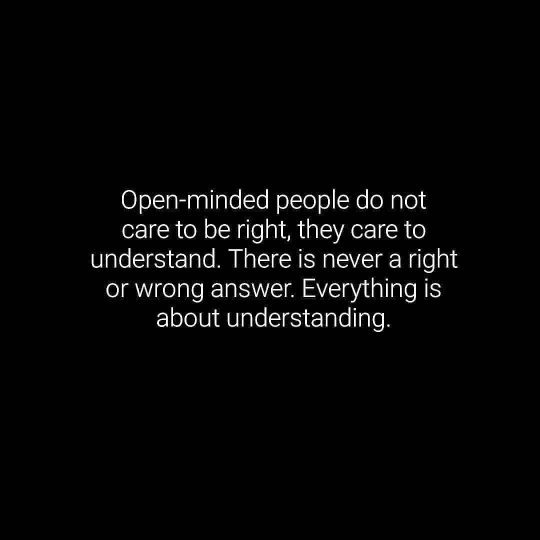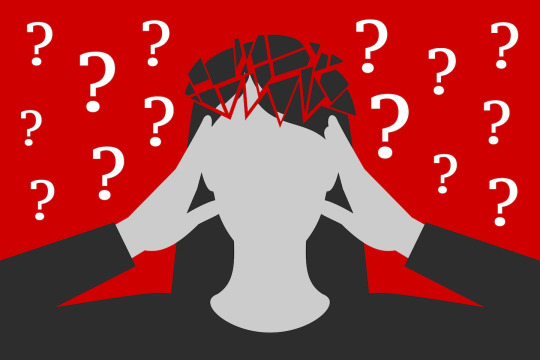Text
what an eye soothing photograph by Susan Kramer @seagirl49

Summertime on the Ocean Trails
© Susan Kramer 2022 All Rights Reserved
Southern California
202 notes
·
View notes
Text
Is it so?
“But things work out, you know. Even if it doesn’t feel OK for a long time, or even if it feels like things will never be OK again, (things) work out in the end.”
— Lauren Morrill
#Lauren Morrill#quotes#motivation#literature#relationship quotes#original#words#relationship#love#thoughts#lit#prose#spilled ink#inspiring quotes#life quotes#quoteoftheday#love quotes#aesthetic#writing#poetry#poem#motivatingwords#imperfect#impafect#thrumylns#pennpapper
578 notes
·
View notes
Text
Doomed!!
Image idea, design and manipulated by me, ©thrumylns, @impafect do not use it with out permission.

Death is not the greatest loss in life. The greatest loss is what dies inside us while we live.
-Norman Cousins
#artsnthoughts#thrumylns#quotes#mobile photography#relationship#thoughts#emotions#feelings#photography#love#manipulación#female manipulator#photo manipulation#picsart#snapseed#mobilephotography#her thoughts#thoughtkick#messy aesthetic#messy thoughts
0 notes
Text
It was all she ever wanted: to dwell in peace, without the shadow of her past hunting her.
-thoughtkick
#quotes#love#relationship#wise words#wordsofwisdom#my words#motivational thoughts#motivation#motivatingwords#poetry#her thoughts#seriously though#artsnthoughts#imperfections#im perfect#imperfect#thoughts#emotions#feelings#friendship
1 note
·
View note
Text
Winter Bloom!

Even though a chill is in the air in parts of the country, it doesn't mean the gardening season is completely over.
Here is my 'winter blooms', show me yours?
All rights reserved by ©thrumylns, @impafect do not use it with out permission.




#quotes#mobile photography#emotions#thoughts#feelings#relationship#love#flowers#winter#winter bloom#bloom#rooftop#roof terrace#photography#photogram#photoshoot#photoblog#photobloger#mobilemacro#macrophotography
2 notes
·
View notes
Photo

Open-minded people do not care to be right, they care to understand. There is never a right or wrong answer. Everything is about understanding.
#inspirational quotes#mental health#positive words#positivity#motivation#Thoughts#artsnthoughts#motivational thoughts#emotions
6K notes
·
View notes
Quote
Stay close to anything that makes you glad you are alive.
Unknown (via surqrised)
135 notes
·
View notes
Quote
Loyalty isn’t grey. It’s black and white. You’re either loyal completely, or not loyal at all. And people have to understand this. You can’t be loyal only when it serves you.
Sharnay (via surqrised)
103 notes
·
View notes
Text
“when the tree lose all his leaves a feeling sneaks to me. It takes everything inside me to breathe. you’re the leaves, please don’t leave. otherwise I can’t breathe.”
— Thoughtkick
(via thoughtkick)
368 notes
·
View notes
Text
“One of the hardest things in life is letting go of what you thought was real.”
— Unknown
85 notes
·
View notes
Text

Now I've got that feeling once again, I can't explain you would not understand, This is not how I am, I have become comfortably numb
#artsnthoughts#thrumylns#mobile photography#illusion#spritualart#colorsplash#color palette#city/town#sky#cozycorner
1 note
·
View note
Text
Decision fatigue: Why it’s so hard to make up your mind these days, and how to make it easier
From the moment we wake up each day, we’re faced with a continuous stream of choices. Many are minor (which route to take to work), others are major (whether to accept a new job), and they all add up. When there are too many options, we tend to feel overwhelmed, anxious, stressed, or otherwise out of sorts. This is decision fatigue, a state of mental overload that can impede our ability to make additional decisions.

Even if you’ve never heard of decision fatigue, you have probably experienced it, especially during the pandemic, which has added a new layer of complexity to the everyday choices we face.
“There’s no aspect of the pandemic that has not thrown decisions at us that we haven’t had to make before,” said psychologist Barry Schwartz, a visiting professor at the Haas School of Business at the University of California, Berkeley, and author of “The Paradox of Choice.” “Things that used to require no thought or effort now require a lot of planning. In the COVID world, so much is uncertain – we haven’t had practice making decisions under these circumstances.”
Indeed, on a regular basis, many of us now wonder: Is it safe to go to an athletic event or eat indoors at a restaurant? Should we get together with friends or have people over? Is it OK to travel or go to the gym or ____ (fill in the blank)?
Furthermore, “The information we need to make decisions keeps changing,” says Lynn Bufka, a practicing psychologist in Maryland and senior director for practice transformation and quality at the American Psychological Association. “And with the pandemic, some decisions are fraught with some level of risk, which can lead to anxiety, which can impair our ability to take in information and make decisions.”
Decision-making is challenging under any circumstances because there are a lot of moving pieces to the process.
“People have to consider their preferences and how they’re linked to their goals and values, they commit themselves to a course of action, and there are evaluative steps including cost-benefit calculations,” explains consumer psychologist Kathleen Vohs, a professor of marketing at the Carlson School of Management at the University of Minnesota. “In combination, this makes it a very taxing psychological experience.”
And some things make it more taxing: “The more complicated a decision is, the more it wears you out,” Schwartz says.
When decision fatigue kicks in, you may feel like you just don’t have the mental energy to deal with more decisions. This can lead to decisional paralysis or depleted self-control, causing you to avoid making certain choices entirely, to go with the default option or to make ones that aren’t in line with your goals or values, experts say.
Decision fatigue is more than just a feeling; it stems in part from changes in brain function. Research using functional magnetic resonance imaging has shown that there’s a sweet spot for brain function when it comes to making choices: When people were asked to choose from sets of six, 12 or 24 items, activity was highest in the striatum and the anterior cingulate cortex – both of which coordinate various aspects of cognition, including decision-making and impulse control – when the people faced 12 choices, which was perceived as “the right amount.”
Decision fatigue may make it harder to exercise self-control when it comes to eating, drinking, exercising, or shopping.
“Depleted people become more passive, which becomes bad for their decision-making,” said Roy Baumeister, a professor of psychology at the University of Queensland in Australia and author of “Willpower: Rediscovering the Greatest Human Strength.” “They can be more impulsive. They may feel emotions more strongly. And they’re more susceptible to bias and more likely to postpone decision-making.”
In laboratory studies, researchers asked people to choose from an array of consumer goods or college course options or to simply think about the same options without making choices. They found that the choice-makers later experienced reduced self-control, including less physical stamina, greater procrastination, and lower performance on tasks involving math calculations; the choice-contemplators didn’t experience these depletions.
Having insufficient information about the choices at hand may influence people’s susceptibility to decision fatigue. Experiencing high levels of stress and general fatigue can, too, Bufka says. And if you believe that the choices you make say something about who you are as a person, that can ratchet up the pressure, increasing your chances of being vulnerable to decision fatigue.
While you may not be able to avoid this phenomenon entirely, you can take steps to minimize it. Here’s how:
Put sleep on your side. “Sleep is tremendously important for willpower and decision-making,” Baumeister said. “Quality sleep matters more than the quantity of sleep.” If you’re struggling with a difficult decision at night, rather than rushing to make it before turning it in, you’d be better off sleeping on it and reconsidering how you feel about it in the morning. ”Decision fatigue tends to accumulate over the day,” Baumeister notes. “Sleep restores energy, so you’re better able to face things. It’s not that those things are better (in the morning) – it’s that you’re better.”
Make some choices automatic. People make thousands of decisions each day, Schwartz says. “There’s a meta decision we can make about how many decisions we’re willing to make in a day or week. The trick is to automate a lot about your life so you don’t have to make so many decisions.” Some easy ways to do this: When you go grocery shopping(or order grocery delivery), use a master list that has the same staples, and buy the same brands each time. If you like having oatmeal for breakfast, stick with it on a daily basis. And if you’re trying to exercise regularly, dedicate a consistent chunk of time for it every day.
Enlist a choice adviser. When it comes to making important or particularly challenging decisions, “it helps not to be in it alone,” said psychologist Baruch Fischhoff, a professor of engineering and public policy at Carnegie Mellon University. “Ask someone you trust who cares about you to check your thinking. It can be helpful to share your uncertainty and anxiety” about which way to go on the matter and to get another perspective and opinion. It also may help to review the pros and cons together.
Give your expectations a reality check. “Remind yourself that good enough is almost always good enough,” Schwartz says. If you need a new mobile phone or TV, it doesn’t have to be the best model out there. So don’t cast too wide a net when considering the options. Remember, too: “Most decisions are not going to be 100% irrevocable or going to determine the path of our lives,” Bufka adds. If you’re not happy with the results, you can often choose to change course.
Pace yourself. When you make one decision after another, it’s easy to end up with cognitive fatigue. That’s why it’s important to “give yourself time to rest and recover throughout the day and break up activities so you’re not mentally on all the time,” Bufka says. This will help you replenish your cognitive resources so that you can make more thoughtful decisions.
Tune into how you’re feeling. Be alert to signs of decision fatigue and act accordingly: If you’ve had a demanding day that was filled with lots of decisions, put off making another one, if you can. If things that wouldn’t normally faze you start bothering you, consider that a sign that you may not be in the optimal state of mind to make a major decision. “People may not realize that they’re experiencing decision fatigue,” Baumeister says. “It’s something to watch out for.”
#decisionfatigue#indecision#indecisionisfearinhiding#confussion#mentalhealth#isues#relationship#life#career#path#decision
0 notes
Text
8 Ways to Help a Loved One With Anxiety, According to Psychologists
Did you know that according to the Anxiety & Depression Association of America, 40 million adults in the U.S. are affected by anxiety disorders per year? That's basically the entire population of California, which makes up nearly 20 percent of our country's population.

But what exactly is anxiety? When anxiety (a persistent worry that won't quit) or fear "gets stuck," it can turn into a disorder and when it arises, can make functioning ten times harder, Aliza Shapiro, LCSW, the clinical operations manager at Center for Anxiety in New York City, tells HelloGiggles. For the person who is experiencing this wave of anxiousness and panic, having someone in their corner can make a big impact on their mental health.
"Most of our anxiety is rooted in uncertainty and loss of control, so when situations arise that trigger either of those feelings, we often experience anxiety as a result. Like every emotion, anxiety presents itself in the body (sensations), mind (thoughts), and feelings (urges, emotions)," she explains.
While the emotion of anxiety is universal, the way we experience or express it is not.
Aside from physical symptoms, these waves of overwhelming, excessive worry can lead to conceptual symptoms like the inability to focus on anything but fearful thoughts, the gradual building of anxious feelings, and the anticipation of perceived unpredictability, says Catherine Schmidt, PsyD, a clinical psychologist in California.
So if you know someone who experiences the above symptoms and you're not sure how to help, we connected with a few psychologists to find out how you can support someone who has anxiety.
The most important thing you can do to help those affected by anxiety is to first, if possible, understand their triggers—interpersonal relationships, large crowds, stressful life situations—but mainly, be a pillar of support.
Learning and understanding how to help during an attack or strong wave of anxiety is a good tool to have in your mental health back pocket—not only for those around you, who may suffer from anxiety but also in case you ever experience something similar as well. These expert-recommended tips are a great place to start.
1. Remain calm.
"You want them to be able to pull from your calmness and safety, so do your best to remain grounded and be mindful of your own breathing," Dr. Schmidt says.
2. Use "we" statements.
She also explains that using "we" instead of "you" statements will assure the person who is experiencing the attack that they aren't alone. For example, you can say, "Let's take a few deep breaths together," instead of, "Take deep breathes! In and out like I'm doing."
3. Lead with empathy.
If you, too, have struggled with anxiety, use it to your benefit to help empathize with your loved one, but don't make it all about you. If they ask to be alone, step away and respect their wishes or if they're okay with you staying, provide compassion. "Now is not the time to talk about your own experience with anxiety or compare struggles, nor is it time to insert your opinions or minimize their experience," Dr. Schmidt says.
4. Communicate openly.
Knowing that they can count on you for reassurance and safety may help lessen the severity of anxiety or fear they are feeling. Dr. Schmidt suggests gently asking if they'd like to sit or lay down or go on a walk to get some fresh air. You can also offer positive verbal communication— "This feels scary, I know, but we are going to get through this." But first, ask if they feel comfortable receiving verbal support. The same goes for physical touch (i.e. placing your hands on their shoulders) if they feel comfortable receiving that kind of support.
5. Offer (but don't force) grounding techniques.
Sometimes, the most effective way to relieve anxiety is through grounding techniques, which encourage the person to focus less on their symptoms and more on their surroundings. A common example is having someone list objects they can see, touch, smell, and hear. If they prefer to keep their eyes closed, offer to walk them through a light stretch like rolling out their shoulders.
6. Try not to "fragilize."
"When loved ones experience anxiety, let them know that it's okay to have the emotion and that you are there for them," Shapiro says. However, do not, under any circumstances, attempt to "solve their anxiety-related problems." You are merely a pillar of support, not a licensed professional.
7. Check-in and debrief.
As a supporter, constructive criticism is your friend. At the end of the day, you want to be the most supportive you can be and the best way to do this is by hearing how the experience was for them and what, if anything, you could do differently should there be a next time, Dr. Schmidt explains. For instance, you can say: Can I do anything differently to support you if we experience this again? Or was there anything I did that was helpful?
8. Normalize therapy
Opening up to friends and family is a great step towards taking care of your mental health; however, there's only so much they can do. Shapiro's advice is to encourage them (in a loving, gentle manner) to get concrete help because "learning skills and methods to work through anxiety with a therapist can [truely] be transformative."
#anxienty#emotional breakdown#artsnthoughts#thrumylns#feelings#anxiety attacks#help#emotional bond#relationship#friendship#darkness#mental health#panicking#panic attack#lonely#fear of loosing#fear#love#hate
5 notes
·
View notes
Text
“You can’t always wait for the perfect time. Sometimes you just have to jump.”
— Unknown
533 notes
·
View notes
Text
“Allow yourself to hope and believe again. Don’t allow the memories from the past to spoil the present, or to rob you of a future.”
— Unknown
337 notes
·
View notes
Text
“If you don’t try at anything, you can’t fail… it takes back bone to lead the life you want.”
— Richard Yates, Revolutionary Road
(via thebookquotes)
1K notes
·
View notes
Text
Sometimes you don't need someone to give you answers but someone to understand why you are questioning, sometimes you don't need someone to calm your fears but just someone to give you the right to be afraid for a while, sometimes you don't need a voice to correct your non sense but rather holds your hands while you are being a mess, sometimes you don't need someone to stop your tears but rather someone to hug you and cry with you, from time to time we all need someone to accept us, swollow our insecurities and weirdness, someone who allow us to heal with time while they are just by our side, but most of all you need someone to trust they will accept all of you, even when they don't understand it.

1 note
·
View note